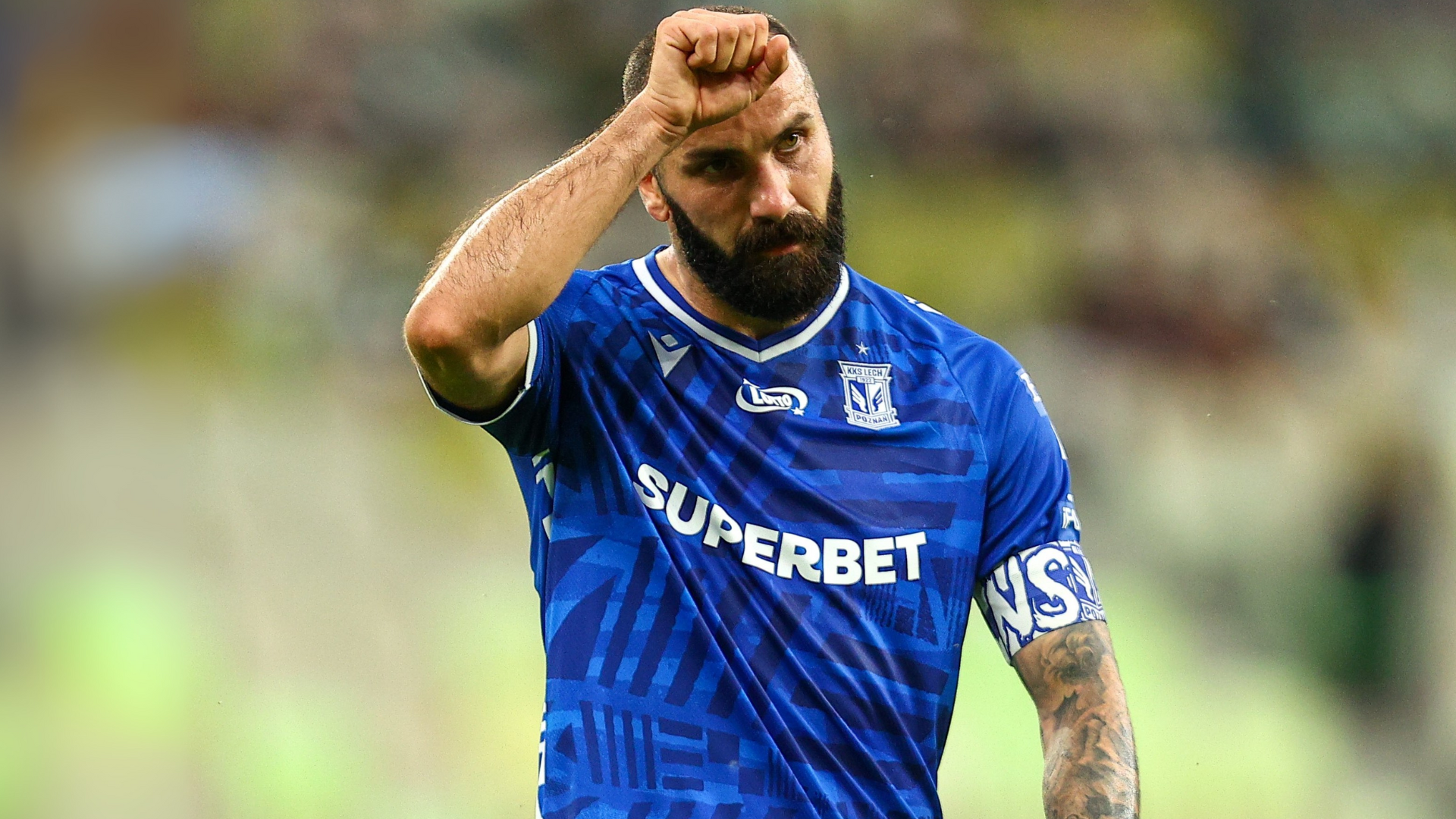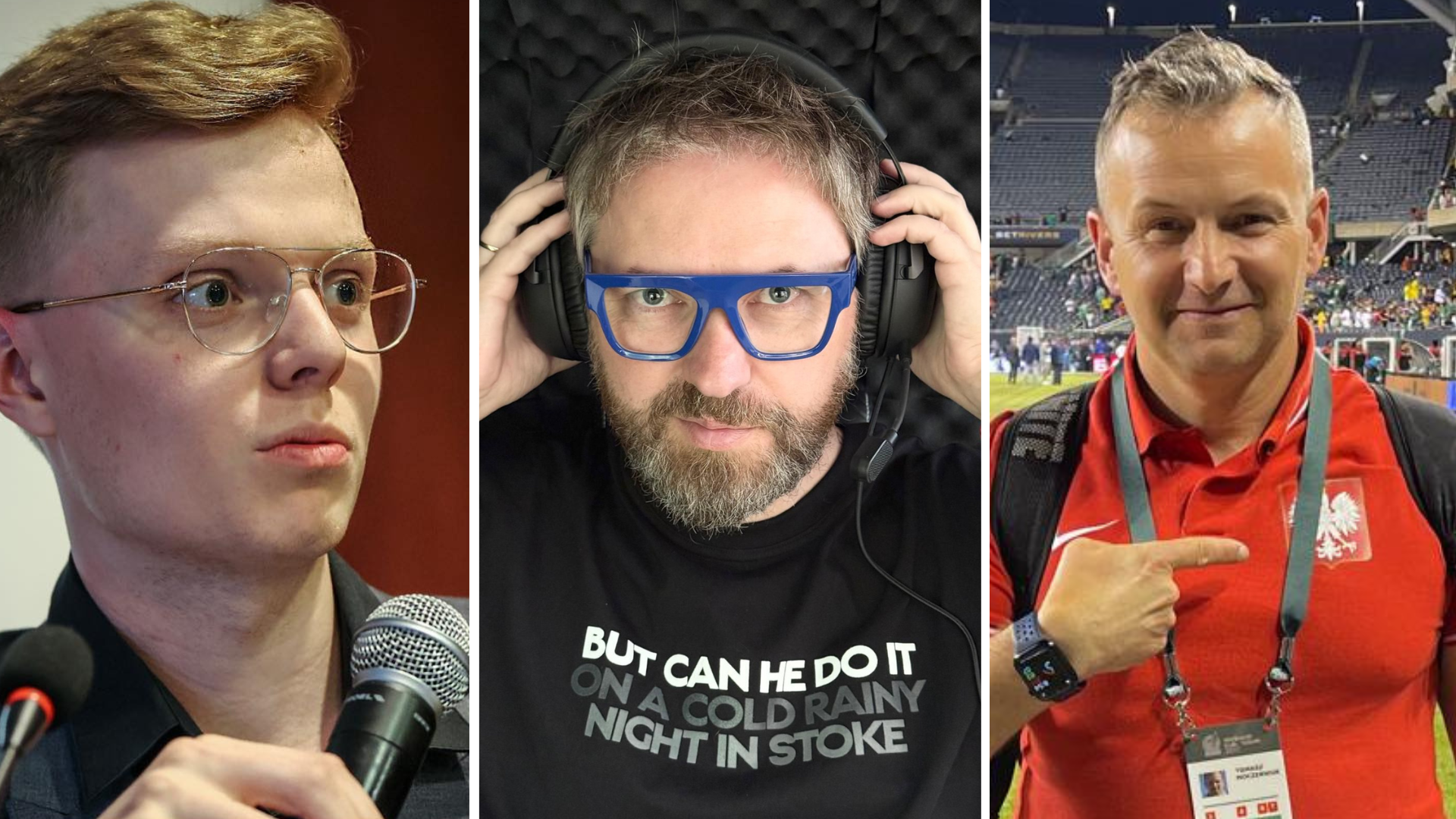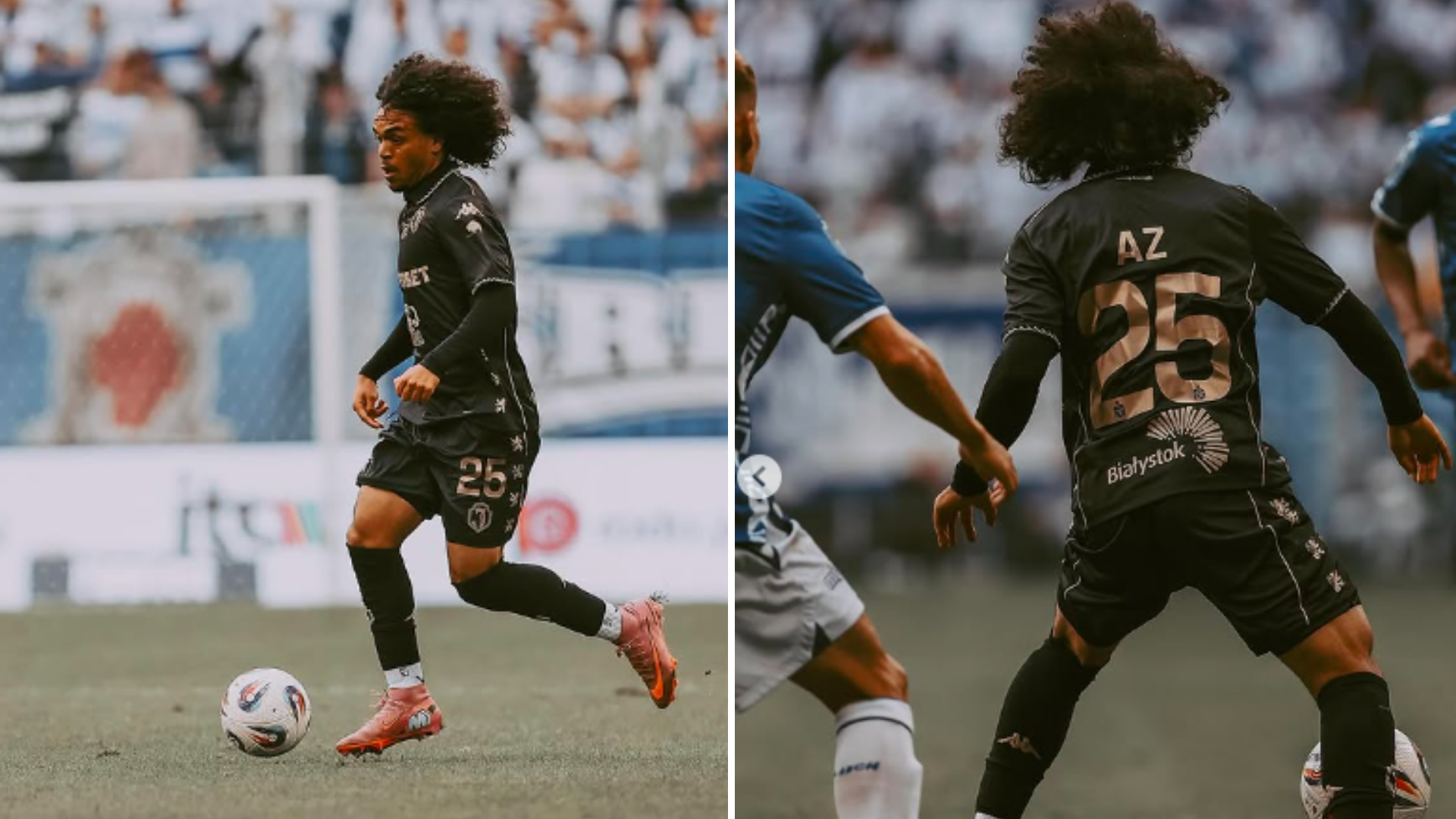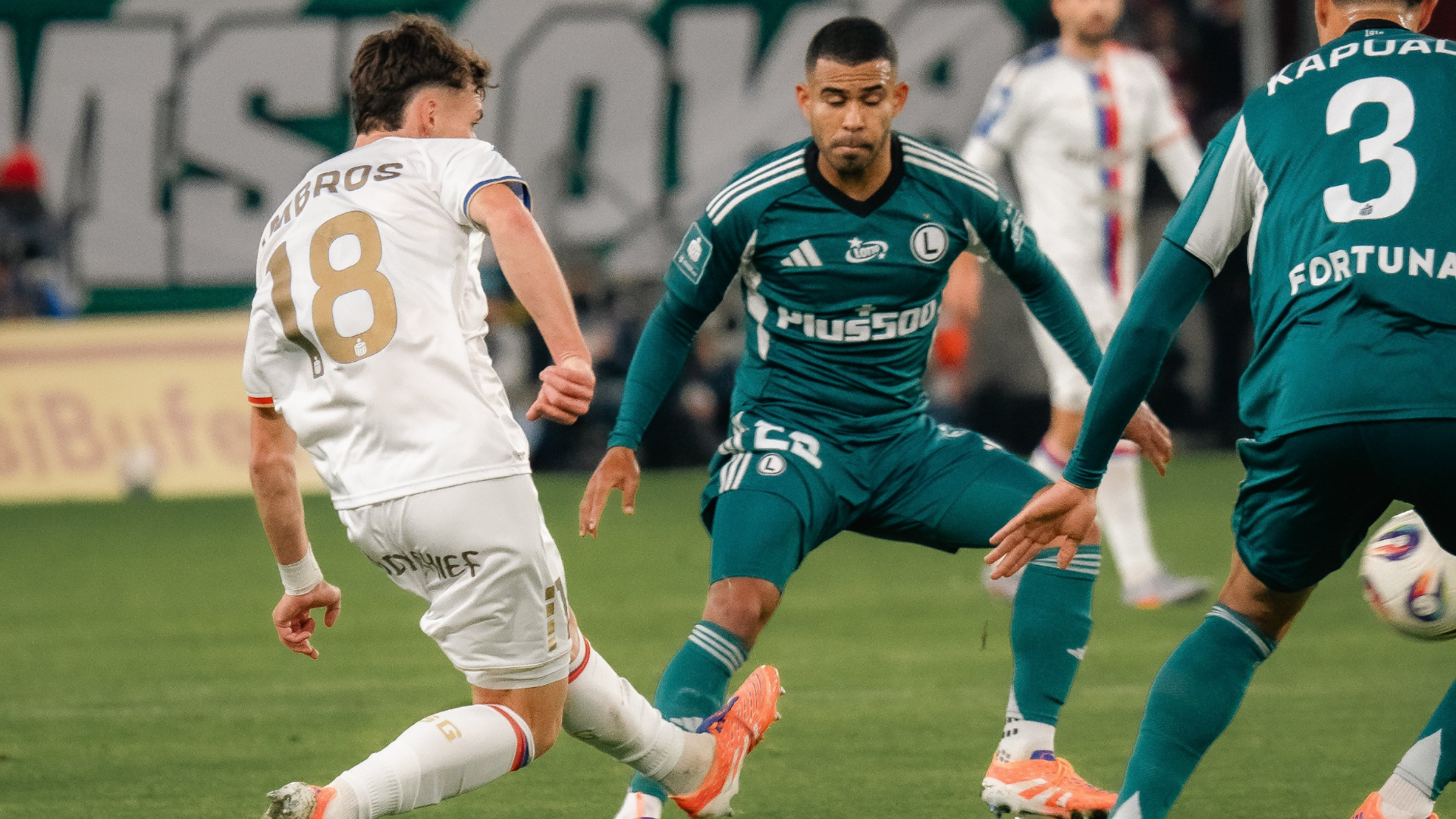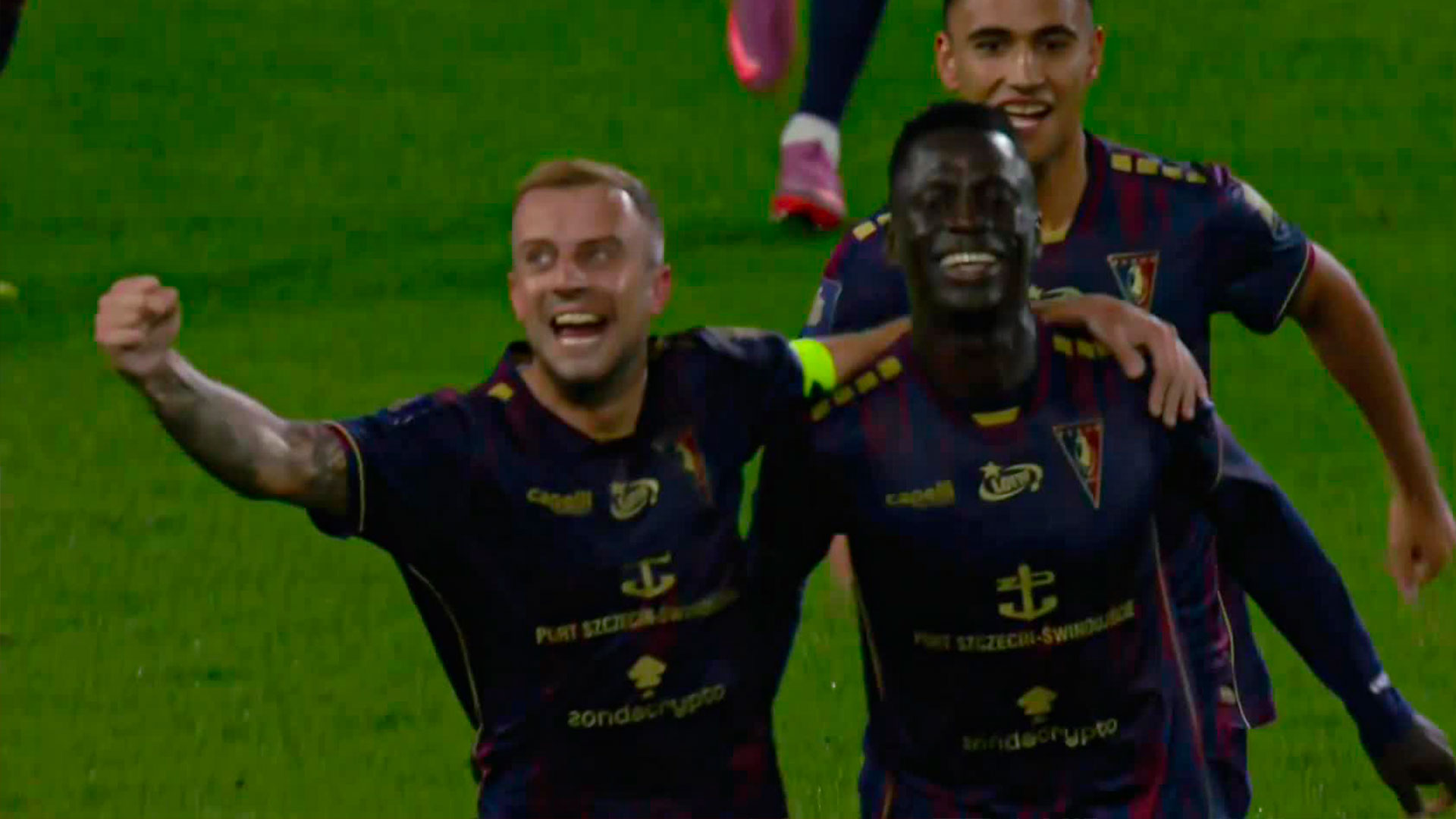- Home >
- Soccer >
- PKO BP Ekstraklasa >
- “Maniek,” the Brazilian colony, and Roger’s naturalization. Three incredible stories of Latin American soccer players in Poland
“Maniek,” the Brazilian colony, and Roger’s naturalization. Three incredible stories of Latin American soccer players in Poland
In the early 2000s, Poles fell in love with Latin American soccer players. Pogoń Szczecin had a record 19 Brazilians among its 26 players. Some of the players transferred to the Ekstraklasa did so well that there were ideas to grant them Polish citizenship and the opportunity to play for the national team. Roger played for the Polish national team and scored the first goal in Poland's history at the European Football Championship.
Brazilian Pogoń Szczecin
After the fall of communism in Poland in 1989, businessmen appeared who quickly made a lot of money in the post-economic transformation system. Some of them invested their money in football, sometimes coming up with completely crazy ideas without any structured plans. Among them was Antoni Ptak, who made his fortune building market halls and then began investing in football clubs. One of his ideas remains a funny anecdote in the football community to this day.
He took over Pogoń Szczecin due to the club's financial problems. He began bringing Brazilians, who he believed to be the best footballers in the world, to the team from the city on the German border. To prevent them from being influenced by the party atmosphere in Szczecin, he set up a training base in Gutów Mały in central Poland. As a result, the players had practically the longest distance to travel for matches... to their own stadium. The millionaire's son was responsible for transfers and managed to buy several well-known players. Among the chaotically recruited players were Amaral, bronze medalist at the 1996 Olympic Games and 10-time Brazilian national team player, and Adriano Gerlin da Silva, former top scorer of the U-17 and U-20 World Cups. Such names made a huge impression in Poland at the time. In the 2005/06 season, 19 of the 26 players in the squad were Brazilian. This season, there are nine Brazilian players in the entire Ekstraklasa league.
“They really knew how to play football. I watched them many times. They performed two classes better than in Poland. I brought them to Europe in the winter, and that was a mistake. My center in Gutów Mały was covered in snow at the time. I think they were scared of winter. They had never seen such conditions before. I hoped that they would acclimatize better in the group," said club owner Antoni Ptak in an interview with Przegląd Sportowy. In the 2006/07 season, Pogoń was relegated from the top division and was dissolved. It had to start from the fourth division.
A Brazilian in the Polish national team
Also in 2006, Roger Guerreiro joined Legia Warsaw. The Brazilian was loaned to Poland thanks to the contacts of Mariusz Piekarski, a former player for CR Flamengo and Athletico Paraneanse, and later a football agent. Roger had previously played in Europe, for Spanish club Celta Vigo, and was received with great optimism in Poland. His first season ended with the Polish championship, so the Warsaw club decided to buy him out. Even then, no one expected that a little over a year later, Roger would become a representative of Poland.
The footballer, who was relatively unknown in Brazil, conquered Polish pitches, and his form coincided with the Polish national team's first historic promotion to the European Championships. The Polish national team needed midfielders. Sensationally, they decided on Roger, who underwent a rapid naturalization process. Polish President Lech Kaczyński himself was involved in the process, and two months before the start of the European Championship, the Brazilian received all the necessary documents. He performed really well amid the Polish mediocrity of those years. He scored his first goal for Poland at the European Championship and played 25 times for Poland in three years.
After Legia, he played in Greece and Cyprus before returning to Brazil. Although he still talks about his love for Poland in interviews, he ultimately decided to settle in São Paulo. After his career ended, he struggled with financial problems. "I got in my car and decided to work for Uber. It lasted three or four months. I liked it and treated it as a very interesting experience, but I didn't do it just to kill time. At the same time, I was setting up my own soccer school, so I needed every penny. When it was established, I stopped driving people around," he told Przegląd Sportowy. He also worked as a sports commentator on a radio station in São Paulo.
“Maniek” from Colombia
Shortly after Roger proved himself, Poland went crazy for so-called “dyed foxes” - naturalized players in the national team. Among the players considered for the Polish national team was Manuel Arboleda, one of the most colorful figures in Polish football at the time. “At that time, I knew nothing about Poland except that John Paul II was born in that country. Of course, I had no idea about Polish football. The agent who arranged my transfer to Poland deceived me. He said that I would be lying on the beach and sunbathing all the time because the sun shines all year round, so I arrived in shorts and a T-shirt. It was December, so I was shivering with cold and didn't know what to do. The agent was supposed to pick me up at the airport, but no one showed up. I only had a hundred dollars in my pocket and didn't know a word of Polish. It was a disaster," he recalled his beginnings in Poland for Onet.
However, he quickly found his feet on the pitch. Out of affection, his teammates called him “Maniek,” Polonizing his name. On the pitch, however, he was relentless, as Robert Lewandowski, among others, found out. The Colombian kept a close eye on the then-young striker at every training session at Lech Poznań. The current Barcelona striker had to face a very physically strong teammate at the time. “It's the same Robert as 15 years ago! You can see that training with me was useful for him, after which... he matured!” Arboleda said years later in an interview with Fakt, proud that training with him had brought results.
Arboleda made his mark on Polish culture with his jerseys. When he won the Polish championship with Zagłębie Lubin, he showed a T-shirt with the words “Thank you Jesus, Zagłębie, F. Smuda, Cz. Michniewicz.” A similar situation occurred after winning the Polish Cup with Lech Poznań (“Thank you Jesus, Poland, Lech Poznań, F. Smuda”).
Despite the affection he enjoyed in Poland, his application for Polish citizenship and to play for the White and Reds was ultimately rejected by the country's president. This may have been influenced by the poor performance of the Polish national team at the 2012 European Championships, where several “dyed foxes” played. Currently, the Polish national team includes players born outside Poland, but only those with strong Polish roots - Matty Cash from Aston Villa and Nicola Zalewski from Atalanta Bergamo.
Filip Zieliński beIN Sports correspondent in Poland, journalist for Przegląd Sportowy Onet











